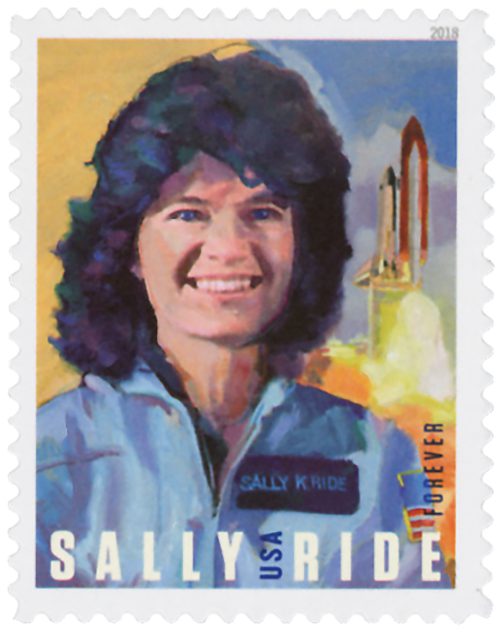On June 18, 1983, Sally Ride became the first American woman in space. She was the third woman overall, after Soviet cosmonauts Valentina Tereshkova and Svetlana Savitskaya.
Sally Ride was born on May 26, 1951, in Encino, Los Angeles, California. The older of two children, she was interested in science from a young age and was also a nationally ranked tennis player.
Ride studied at Swarthmore College and the University of California, San Diego, before earning her bachelor’s in English and physics from Stanford. She went on to earn a masters and PhD in physics in 1975 and 1978. Also in 1978, Stanford ran an ad in the student newspaper looking for people to join the space program. Ride was among the 8,000 people who applied.
Accepted to NASA in 1978, Ride started her career as the ground-based capsule communicator for the space shuttle as well as helping build the ship’s robotic arm. Once it was announced that she would go into space aboard the Challenger mission STS-7, she received instant fame as America’s first female astronaut to go to space. Despite this major milestone, Ride faced many sexist questions at press conferences that included “Will the flight affect your reproductive organs?” and “Do you weep when things go wrong on the job?” In a 1983 interview with Gloria Steinem, Ride would say, “Everybody wanted to know about what kind of makeup I was taking up. They didn’t care about how well-prepared I was to operate the arm or deploy communications satellites.”
On June 18, 1983, at 7:33 a.m., the STS-7 mission launched from the John F. Kennedy Space Center in Florida. In addition to Ride becoming the first American woman in space, she was also the youngest American in space at age 32. The flight was also notable in that it was the largest crew in a single spacecraft up to that time (five). During that mission, the crew deployed two communications satellites and staged pharmaceutical experiments. Ride was the first woman to use the robot arm in space and used it to grab a satellite.
Ride made a second trip to space in 1984, again on the Challenger for STS-41-G. That mission was the first to carry seven people and the first to carry two American women – Ride and Kathryn Sullivan. Ride later underwent eight months of training for her third trip to space, but the Challenger disaster grounded all shuttles. In her two missions, Ride spent over 343 hours in space.
Ride went on to take part in the investigations of the Challenger and Columbia disasters, making her the only person to participate in both. She also founded NASA’s Office of Exploration. After her retirement from NASA in 1987, she became a professor of physics at the University of California, San Diego, and director of the California Space Institute. Ride also devoted much of her time to encouraging children, especially young girls, to pursue the sciences, founding her own nonprofit organization dedicated to the cause.
Ride died on July 23, 2012. She received many awards during and after her life. These included the National Space Society’s von Braun Award, the Lindbergh Eagle, the NCAA’s Theodore Roosevelt Award, and two NASA Space Flight Medals. She was also inducted into the National Women’s Hall of Fame and the Astronaut Hall of Fame. In 2013, President Obama posthumously awarded her the Presidential Medal of Freedom. Today she is considered one of the most inspirational American women of all time.
| FREE printable This Day in History album pages Download a PDF of today’s article. Get a binder or other supplies to create your This Day in History album. |
Click here for a video about Sally Ride from the Smithsonian National Air and Space Museum.
Discover what else happened on This Day in History.










She was the first known lesbian astronaut which was kept hidden while she was alive. This is another reason to celebrate Pride Month.
For starters, too much information ^^^^… Never really got unto “Space Stamps”. Participated with several Gemini Capsule recoveries, saw a rocket launch explosion at Cape Kennedy (Canaveral), Polaris missle launch from the Calhoun, what’s left really?
Regarding, rich
Wow.
Power to the women – as well as the LBGTQ community. Sally was a great example of courage, leadership and what’s supposed to be right in the world.